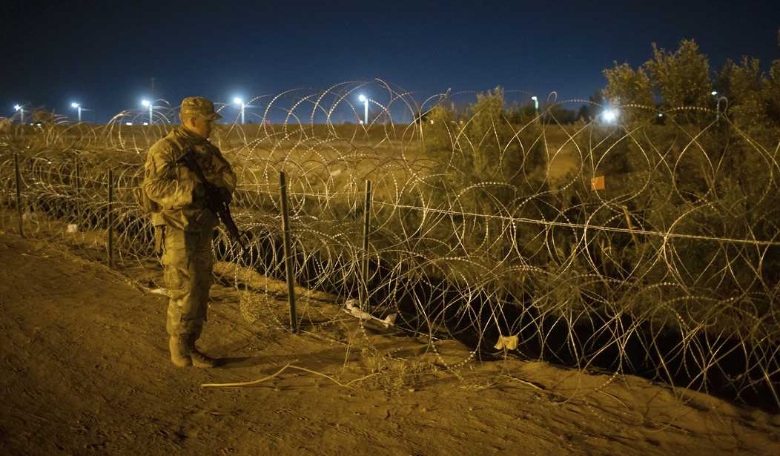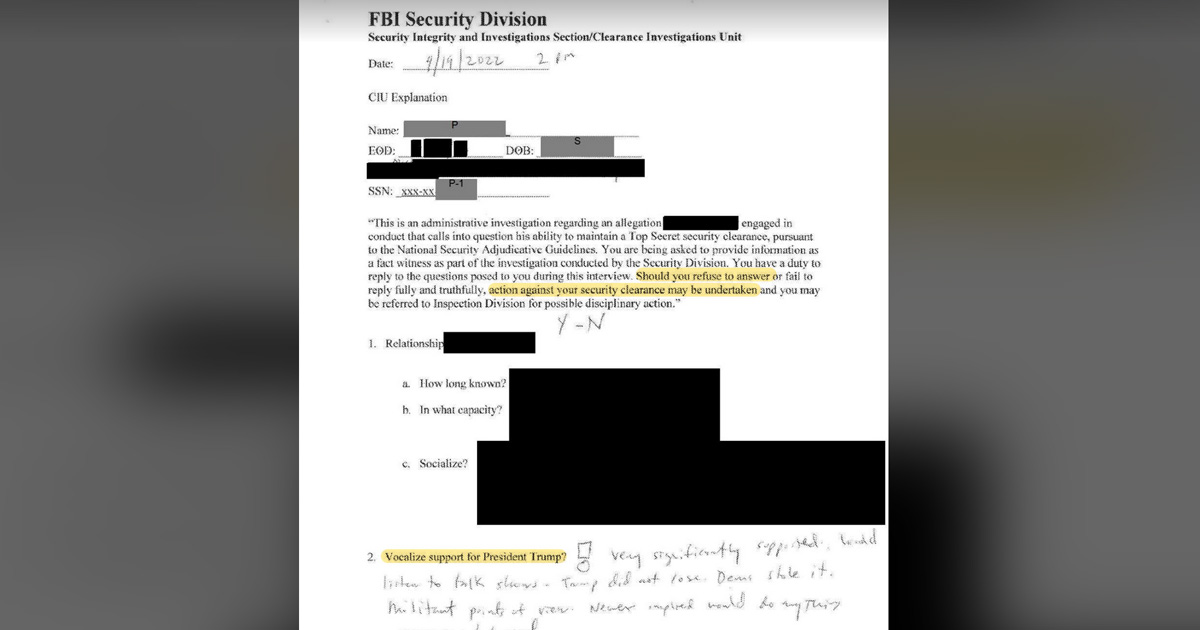A violent crisis is brewing at the U.S.-Mexico border as members of the infamous Venezuelan prison gang, Tren de Aragua, make a relentless push to infiltrate the United States. Armed with knives, tire irons, and broken bottles, these gang members have launched aggressive incursions near El Paso, Texas, targeting border crossings ahead of anticipated border policy changes on January 20.
A leaked memo from the Texas Department of Public Safety reveals the gang’s chilling threats to attack border guards who resist their entry.
Anchored In Oklahoma
The situation escalated last week when 20 Tren de Aragua members stormed a border gate in what law enforcement described as a violent and coordinated assault. The gang’s bold tactics have alarmed security experts and raised serious concerns about the broader implications for national security. Victor Avila, a retired agent with Homeland Security Investigations (HSI), believes these actions are part of a calculated strategy rather than desperate attempts.
“They know the clock is ticking,” Avila said, referencing the incoming administration’s promise of stricter border enforcement. “They’re trying to get as many members across as possible before the game changes.”
An anonymous informant disclosed that these break-in attempts are planned nightly, often around 3 a.m., reflecting the gang’s deliberate and strategic approach. The repeated incursions underscore the failure of current border policies to deter such dangerous actors, prompting calls for immediate action.
Tren de Aragua, born out of Venezuela’s brutal and overcrowded prison system, has evolved into a powerful international criminal network. Known for human trafficking, drug smuggling, and extortion, its members are notorious for their ruthlessness and disregard for authority. Avila likened their anti-American ideology to that of terrorist organizations.
“They hate the United States just like terrorists do,” Avila said. “They’ll kill, destroy, and take over businesses or properties to dismantle our way of life.”
This stark assessment has fueled speculation about a deeper geopolitical motive. Avila suggests that the gang may be acting on directives from Venezuela’s authoritarian regime, led by President Nicolás Maduro. If true, this would elevate the border crisis from a domestic security issue to an international conflict requiring a firm response against Venezuela’s government.
The border crisis is already staggering in scope. Fiscal year 2024 saw nearly three million undocumented immigrants enter the U.S., with another estimated two million crossing undetected. While many migrants hail from Latin America, growing numbers are arriving from the Middle East, North Africa, the Caribbean, and China. This surge has overwhelmed border resources and exposed critical vulnerabilities that groups like Tren de Aragua are exploiting.
Even when apprehended, many migrants are released with a notice to appear in court—a system critics claim enables criminal organizations to embed themselves within U.S. communities. This leniency has emboldened gangs, allowing them to operate with increasing impunity.
The Biden administration’s border policies have drawn sharp criticism, with detractors arguing they incentivize illegal crossings and embolden criminal actors. “This mess was years in the making,” Avila stated, “and it will take years to clean up. But the current administration’s actions have poured gasoline on an already raging fire.”
As the January 20 deadline approaches, the urgency to address the border crisis intensifies. Experts stress the need for a comprehensive strategy to counter the immediate threats posed by Tren de Aragua and other criminal organizations.
First, securing the border is paramount. Enhanced surveillance, increased personnel, and tougher penalties for illegal crossings could act as deterrents. Second, international cooperation and intelligence-sharing are essential to dismantle the gang’s operations at their source. Third, addressing root causes of migration—such as poverty, corruption, and political instability in countries like Venezuela—could reduce the flow of vulnerable migrants who are often exploited by criminal networks.
The rise of Tren de Aragua as a border threat highlights the failure of current policies to safeguard national security. Without decisive action, the U.S. risks allowing violent foreign actors to destabilize its communities. Avila’s warning is clear: “This is not just a border issue. This is a national security crisis.”
For the U.S., the time for complacency is over. The crisis at the southern border demands immediate attention and bold solutions to restore order and protect the nation. As the clock ticks toward January 20, the stakes have never been higher.


Any aggressive movement from foreign invaders should be met with armed force with orders to shoot if required to repel the invasion and prevent injuries to border personnel! Same as any other criminals who exhibit violent acts in the commission of their crimes. This would also result in future crimes against AMERICAN citizens!